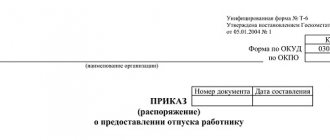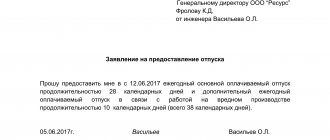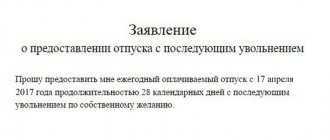Who belongs to workers with irregular working hours?
Despite the fact that the constitutional norm, which states that all employees are guaranteed a normal work shift in accordance with federal law, applies to all citizens who perform their professional duties, more and more often we are faced with the concept of irregular work schedule.
This term was confirmed in Article 101 of the Labor Code of the Russian Federation. This standard notes that an irregular work shift should be understood as a special working regime that is established in relation to specific employees by decision of the administration of an enterprise or organization, but on the condition that these employees fulfill their obligations on the basis of labor agreements.
The government adopted a resolution on December 11, 2002, in which it approved a list of specialists who can be involved in the fulfillment of professional obligations outside the normal work schedule. These employees include:
- management personnel for whom it is impossible to determine exactly how much time they spent performing their direct duties;
- technical and business personnel for whom it is impossible to accurately record the time spent fulfilling their obligations under the contract;
- employees who independently determine the duration of their work schedule and arrange it in such a way as to have time to complete all the necessary actions;
- workers whose shifts can be divided into uneven time periods.
Procedure and rules for granting leave for irregular working hours
So, as mentioned above, specialists who hold a position with an irregular schedule can count on additional leave for irregular working hours (according to the company’s internal documents).
But here the question arises regarding the duration of such leave. Namely, in Art. 119 of the Labor Code of the Russian Federation, the legislator established the minimum amount of vacation - 3 calendar days. Consequently, a company can provide in an internal document (for example, in a collective agreement) a longer amount of additional leave for irregular working hours.
Please pay attention! The company can set its own duration of additional leave for each individual position that requires work on an irregular schedule.
But how exactly for each individual specialist should the company calculate the number of days of additional leave due to him for irregular working hours? After all, for example, standard annual leave, as well as leave for hazardous work conditions, are provided in proportion to the number of days actually worked by a specialist in the company (for leave for hazardous work conditions - in working conditions that negatively affect his health).
Should a similar, proportional calculation scheme be applied in a situation with additional leave for irregular working hours?
The Labor Code of the Russian Federation does not contain any explanations in this regard. At the same time, the regulatory authorities expressed the following point of view: the basis for a specialist to receive additional leave for an irregular working day is the fact that the employee works in a position that the company, in its internal document, correlates with a non-fixed working day. The legislator does not provide for the condition that the amount of leave provided corresponds to the number of days actually worked according to an irregular schedule (letter of the Ministry of Labor dated 08/18/2017 No. 14-2/B-761, Rostrud dated 05/24/2012 No. PG/3841-6-1).
Therefore, any specialist for whom, by virtue of the internal regulations of the company (and his employment contract), an unfixed work schedule has been established, must receive additional leave for an irregular working day in the full amount that the employer has established for him, even if in fact the employee has never been late at work until late.
ConsultantPlus experts talked about how to provide additional leave for irregular working hours. If you don't have access to the system yet, get a trial online access to K+ for free.
Minimum annual additional paid leave for employees
The labor legislation of the Russian Federation provides that there is no a priori specific list of positions that can be involved in the established work schedule, and therefore the management of the organization must independently establish specific positions in the internal labor regulations.
The key nuance of irregular working hours is that specialists do not have to count on additional payment, as when performing work outside of normal working hours. Here, as compensation, employees will be given the opportunity to additional rest by increasing vacation days.
Article 119 of the Labor Code of the Russian Federation states that the specific duration of such leave should be determined by the internal policy of the company itself. However, there are some limitations. In particular, according to the law, vacation on an additional paid basis cannot last less than 3 days.
Mainly, the legislator reorients his responsibilities for determining the duration of vacation days to the employer himself. This is because it is not possible to determine how much time an employee was used at work outside of normal working hours. That is why it is up to employers themselves to determine the exact length of additional leave, and the state remains solely tasked with monitoring compliance with all legal requirements.
Deadlines for additional rest
Art. 119 of the Labor Code of the Russian Federation requires employers to give these categories of employees paid leave in addition to the annual one, lasting at least 3 calendar days.
The maximum duration of leave that management can allow an employee on irregular duty cannot exceed two weeks (according to Article 120 of the Labor Code of the Russian Federation and clause 8 of the Rules “On regular and additional leaves”, approved back in 1930, but still not no longer relevant).
The specific setting of the deadline is determined by the internal policy of the company and the characteristics of labor:
- internal regulations;
- scope of work;
- their complexity;
- frequency of unscheduled involvement of employees, etc.
Procedure and conditions for granting additional leave
Providing additional paid leave of at least 3 days is a kind of compensation for those employees who perform their duties in difficult conditions or work on an irregular work schedule.
It is worth noting that all employees who at least once were involved in the work process outside the normal duration of the shift will have the right to such leave. At the same time, the legislator establishes that the duration of overtime will not depend on the duration of vacation.
Here the situation is under the full control of the management structures of enterprises and organizations.
It is they who determine the duration of additional rest, but with an eye to the uniform provision of the Labor Code of the Russian Federation, which states that annual paid leave granted on additional grounds should not be less than 3 days.
The procedure for granting such leave is prescribed in the current legislative framework, and therefore employers are forced to follow all the requirements specified here. If, according to the working conditions, the employee was not granted leave, the employer may be held administratively liable.
It is worth noting that payment for additional days of rest is made from the general wage fund, and it is accrued within the framework established by law.
Author of the article
For whom is it installed?
The list of professions that are given the opportunity to work under these rules is compiled in no particular order. There is no uniform list of professions with irregular hours in the law. It is only permissible to identify specific recommendations on this issue.
Therefore, in Decree of the Government of the Russian Federation of December 11, 2002 No. 884, it is recommended to include in the list such positions as:
- Director of the enterprise. For example, the general director has the right to work irregular hours.
- Maintenance Specialist.
- Household workers.
- Specialists whose work hours are difficult to account for.
- Those employees who are required to work a certain number of hours, but there is no specific period prescribed for them when this must be done.
For example, an adjuster has the opportunity to start his work earlier than other employees in order to check the serviceability of the equipment.
The caretaker can work on an irregular schedule, making it easier for other workers to perform their job duties.
For example, a realtor has the right to arrange real estate showings within an irregular day.
These positions include citizens of some creative professions; for them, such a schedule is the norm.
The same resolution approved the Rules for providing annual additional paid leave to employees with irregular working hours in organizations financed from the federal budget.
Thus, managers have a certain freedom in selecting positions for non-standard conditions. In private enterprises, such a schedule is determined mainly only at the discretion of the manager. The main requirement is to record in writing the entire list of these positions in the form of an order.
The basics for constructing an irregular schedule in the Labor Code of the Russian Federation do not have clear requirements. The basic standards are spelled out in many clauses of the Labor Code of the Russian Federation, but do not have a single section.
For this reason, when defining and applying an irregular schedule at an enterprise, special care must be taken so as not to violate the law.
What else can you rely on for an irregular regime?
Strictly speaking, additional leave is the only thing that is required for an irregular working day and is guaranteed by the state. All overtime hours ordered by the employer and performed under this regime are not paid. Moreover, the maximum amount of such excess time is not formally limited anywhere in the legislation.
At the same time, the company can independently set an allowance for employees working irregular hours. It must be secured by an internal local act, and also its application must be indicated in the employee’s employment contract or an additional agreement to it.
An example of a possible entry in an employment contract:
“For irregular working hours, the Employee is given a monthly bonus in the amount provided for in clause 4.2.6 of the Regulations on Remuneration (approved by Order No. 4 of October 17, 2020).”
Paid leave for irregular working hours for certain categories of employees
A separate and often pressing question for companies is the following: is there a need to provide additional leave for irregular working hours to those specialists who work for the company under any special conditions (for example, are part-time workers or work on a rotational basis)?
Let's start with part-time workers. As a general rule, they work in one organization as their main job, and additionally work part-time in another company. As required by the legislator, such specialists can spend no more than 4 hours a day on their additional work, and in a month, for example, if the “standard” working time is 176 hours, then they can only work 88 hours part-time, i.e. i.e. no more than half (Article 284 of the Labor Code of the Russian Federation).
For time restrictions on part-time work, see the article “Part-time work - how many hours per week?”
Working on an irregular schedule, as already indicated, involves the occasional involvement of a specialist in performing his work function beyond the standard duration of his working day. That is, an irregular schedule in itself suggests that a part-time worker in this case will sometimes work more than 4 hours a day, which conflicts with Art. 284 Labor Code of the Russian Federation.
Please pay attention! A part-time worker, at the same time, can, in some cases, work at an additional job full-time (when the main job does not pay wages, when he has suspended his work by virtue of Article 142 of the Labor Code of the Russian Federation). However, this is rather an exception, and it is unlikely that the occasional involvement of a specialist beyond the standard duration of his working day will coincide with those days when he is released from work at his main place of work.
The courts also note that if a part-time worker has not suspended his work at his main place of work, then in the second company he actually works on a part-time basis, and not on an irregular day (determination of the Supreme Arbitration Court of the Russian Federation dated July 29, 2013 No. VAS-9418/13). Therefore, it seems that if a specialist works part-time in a second job on an irregular schedule, without occasionally suspending his work in the main organization, then his part-time job cannot give him the right to additional paid leave for an irregular working day .
A similar conclusion is true for shift workers. After all, their working time is taken into account cumulatively for the entire period (for example, a month, quarter or year) during which they were at the enterprise and performed their work (summary accounting, Article 104 of the Labor Code of the Russian Federation). It is not possible for the company to determine exactly when such an employee was occasionally involved in connection with production needs. Therefore, if a shift worker is forced to work longer than usual, then this can be qualified as overtime work (Article 99 of the Labor Code of the Russian Federation), and not as an irregular schedule. This means that the shift worker is not entitled to additional leave for an irregular schedule.
Cash compensation for unused vacation
Despite the legally enshrined opportunity to rest more than average, doctors and nurses often work in such a busy schedule that they simply do not have time to use all the vacation days they are entitled to. In this case, you can replace part of the vacation exceeding 28 calendar days with monetary compensation (Article 126 of the Labor Code of the Russian Federation). To do this, you need a free-form application from the employee addressed to the head of the medical organization.
Please note that current labor legislation prohibits the replacement of annual paid leave with monetary compensation for employees under 18 years of age, pregnant women, and additional allowances for employees engaged in work with harmful and (or) dangerous working conditions.
The right to receive monetary compensation for unused vacation also arises for all medical workers upon dismissal (Article 127 of the Labor Code of the Russian Federation).
Compensation is calculated using a simple scheme by multiplying the average daily earnings by the number of days of unused vacation.
Results
Every specialist whom the company has the right to periodically assign to work longer than usual has the right to additional paid leave for irregular working hours. In this regard, organizations should be aware that such leave can only be granted to those specialists whose position, according to the company’s internal document, belongs to the list of positions with non-fixed working hours. At the same time, such specialists should be given leave in full, regardless of how many days they actually worked above the norm; the very fact of working under irregular schedules is important. In addition, some categories of workers are not entitled to additional leave, since their very involvement in work with an unfixed schedule conflicts with the norms of the Labor Code of the Russian Federation (for example, part-time workers, shift workers).
Sources:
- Labor Code of the Russian Federation
- Code of Administrative Offenses
You can find more complete information on the topic in ConsultantPlus. Free trial access to the system for 2 days.










